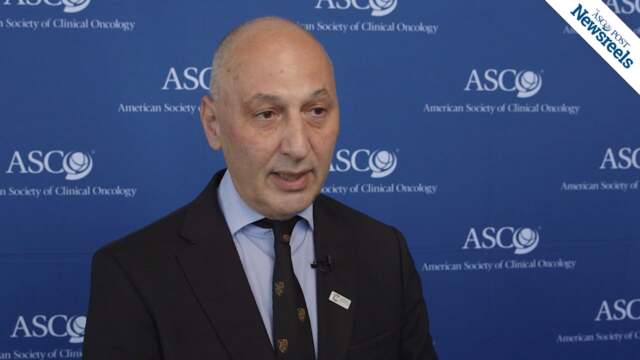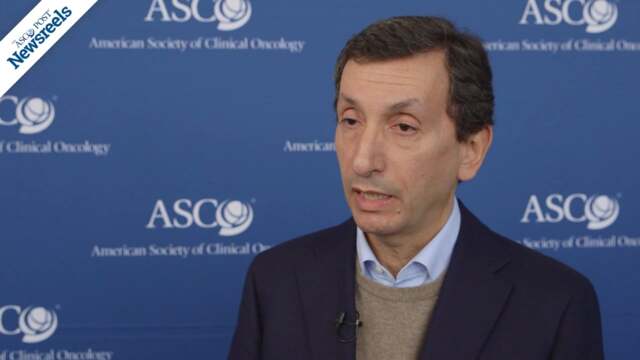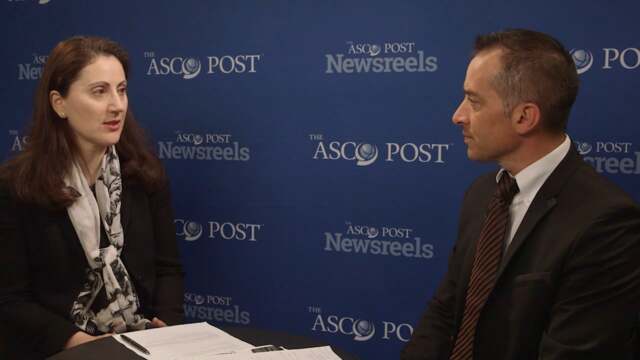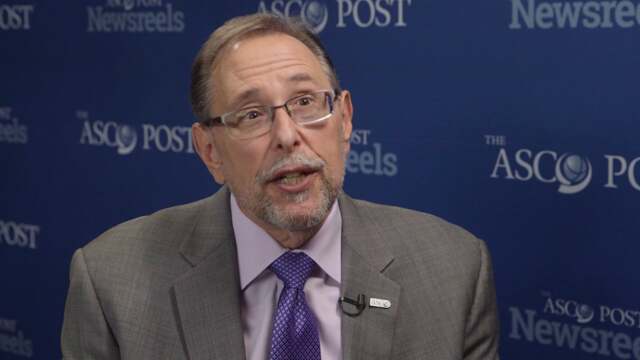A. Oliver Sartor, MD, and Celestia S. Higano, MD, on Findings of the FIRSTANA Trial in Prostate Cancer
2016 ASCO Annual Meeting
A. Oliver Sartor, MD, of Tulane University, and Celestia S. Higano, MD, of the University of Washington, discuss findings from this phase III study on cabazitaxel vs docetaxel in chemotherapy-naive patients with metastatic castration-resistant prostate cancer (Abstract 5006).
John P. Neoptolemos, MD, PhD, of the University of Liverpool, discusses findings from this international phase III study of adjuvant combination chemotherapy: gemcitabine and capecitabine vs monotherapy gemcitabine in patients with resected pancreatic ductal adenocarcinoma (Abstract LBA4006).
Helen MacKay, MD, of the Sunnybrook Odette Cancer Centre, discusses findings from this phase II study of intraperitoneal vs intravenous chemotherapy following neoadjuvant chemotherapy and optimal debulking surgery in patients with epithelial ovarian cancer (Abstract LBA5503).
Michele Cavo, MD, of the Seràgnoli Institute of Hematology, Bologna University School of Medicine, discusses results from this phase III study of upfront autologous stem cell transplantation vs novel agent-based therapy for multiple myeloma (Abstract 8000). To see the Italian version of this interview, please click here.
Vali A. Papadimitrakopoulou, MD, of MD Anderson Cancer Center, and Fabrice Denis, MD, PhD, of the Institut Inter-regional de Cancérologie Jean Bernard, discuss findings from a phase III trial on an app used between visits for early detection of symptomatic relapse and complications in high-risk lung cancer patients (Abstract LBA9006). To see Dr. Denis discuss this study in French, click here.
 To see the French language version of this discussion, click here.
To see the French language version of this discussion, click here.
Richard L. Schilsky, MD, ASCO’s Chief Medical Officer, discusses the key presentations at this year’s conference.





